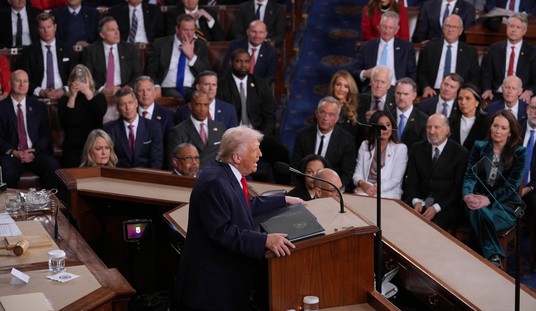Each semester, I teach a course on the U.S. Constitution. In it, my students and I spend 15 weeks discussing the Constitution’s underlying principles and the meaning of its various clauses and amendments.
I love teaching the class. However, as we remember Constitution Day this Sept. 17, I wonder: Are we wasting our time? After all, what can words from 1787 really say to us in 2015? How can their time of horses and quill pens be relevant to our era of jets and iPads?
In other words, why should we teach the Constitution? Because, despite the differences in time and circumstance, we have so much to learn from it. For when we teach the Constitution, we don’t really teach it so much as it teaches us.
That the Constitution teaches the American people at first sounds strange. After all, wasn’t it “We the People” who “ordained and established” it? Isn’t it “We the People” whose will it enacts?
Yes on both accounts. But the Constitution’s role as teacher comes in understanding why “We the People” approved of it and how “We the People” pursue our will through it.
Simply put: the Constitution does more than serve as our means for self-government; the Constitution teaches us how to govern ourselves well.
The Constitution teaches self-government in numerous ways. First, the Constitution reminds us that we do ultimately govern ourselves. The Preamble does begin “We the People,” not “We the Government,” “We the Aristocrats,” or, most thankfully, “We the Politicians.” That fact, which begins the entire document, declares self-government to be our permanent right as equal human beings, not the revocable gift of royalty, academics, or any other supposed elite.
Recommended
Second, the Constitution reminds us that this great right is also a great responsibility. As we possess the right to self-government, so we possess the duty to govern ourselves well. Thus, the Constitution reminds us of the proper goals a well-governed, self-governed people pursue. The Preamble goes on to declare that we establish the Constitution for certain ends. Among these ends are “to … establish justice” and “secure the blessings of liberty to ourselves and our posterity.” Good self-government does not seek any end whatsoever; it seeks goals like justice and liberty. These comprise objective goods that a self-governed people should contemplate and pursue.
Notice, too, that the Constitution does not claim to create justice or to bestow liberty. Justice exists apart from human invention, part of the “laws of nature and of nature’s God” as the Declaration of Independence says. Liberty, as the Declaration continues, is one of our “inalienable rights” stemming from that law. The Constitution, then, does not create but instead seeks to establish and secure these great purposes for human life.
Third, the Constitution teaches us how to pursue these goals in ways that make their attainment more likely. It does so by requiring us to rule ourselves through law. Rule by law means our government does not act upon the capricious whims of anyone, including ourselves. Instead, laws establish consistent rules, known to everyone and applicable to everyone, even those we elect to the highest offices.
Moreover, in the Constitution we do not rule by law directly but through the means of institutions such as Congress, the presidency, and the judiciary. Each institution exercises a particular power (legislative, executive, and judicial) with its own relationship to rule by law. Each institution, in its relationship to the law, can teach by example some facet of proper self-government. Congress, through lawmaking, can show us how deliberating well leads to just, free laws. The presidency, in law enforcement, reminds us that action is necessary for justice to be established and liberty preserved; for law, like talk, is cheap if not defended. Finally, the judiciary can exemplify the careful reasoning we all should employ to guard law’s rule — and thus the justice and liberty it seeks — from violation.
Fourth and finally, in the Bill of the Rights the Constitution reminds us of liberty and justice’s content. The First Amendment, for example, reminds us that secured liberty includes the ability to speak and worship as we see fit. The Eighth, for another, reinforces established justice by demanding that punishments fit the crime. Together, these and the rest of the first ten amendments comprise a primer of justice and liberty, one which we consult to our gain and ignore to our loss.
For these reasons and more I will continue to teach the Constitution. Or, more accurately, the Constitution will continue to instruct me and my students in the principle and practice of self-government. This Sept. 17, as we celebrate this great document, I hope you will let the Constitution teach you as well.
























Join the conversation as a VIP Member